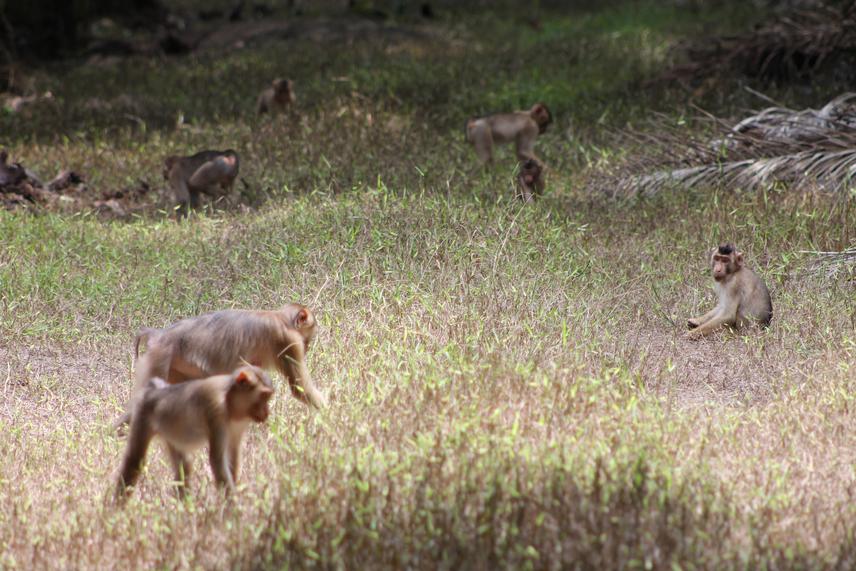Nadine Ruppert
Other projects
11 Feb 2015
Spatial and Temporal Use of Oil Palm Plantations by Wild Macaca nemestrina and its Implication for Mitigating Human-Wildlife Conflicts
Worldwide, primates are affected by habitat conversion into agriculture. Apart from the apparent impacts of habitat loss and fragmentation, primates face various threats when foraging in monocultures, including increased exposure to predators, hunters, but also to harmful chemicals. However, knowledge on the impacts of agricultural pesticides on wild primates is lacking. This project aims to explore the effects of pesticides commonly used in Malaysian oil palm plantations on the health of an endangered primate species, the southern pig-tailed macaque (Macaca nemestrina). As we have shown in previous studies, Macaca nemestrina regularly enters oil palm plantations to forage for food on the ground that can be potentially contaminated with harmful chemicals and their derivates from herbicides, insecticides, rodenticides, and chemical fertilizers.

Macaque group foraging in oil palm plantation. © Julia Borstel/MNeP.
However, macaques also actively hunt rats that are the major pest in oil palm plantations, therefore reducing harvest loss and increasing yield by ca. 100 USD per ha per year in areas where they forage. The fact that they contribute to biological pest control offers an important opportunity for mitigating existing human–macaque conflicts: farmers and palm oil companies are encouraged to protect macaques in their natural primary rainforest habitat via viable natural interfaces between forests and plantations. This could maintain functional connectivity and gene flow between wildlife populations while increasing biodiversity, environmental sustainability, and productivity of existing oil palm plantations.
Header: Macaque group foraging in oil palm plantation. © Anna Holzner/MNeP.